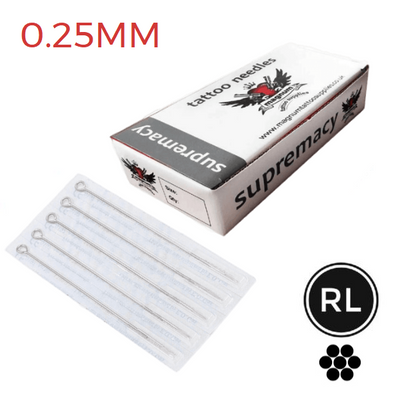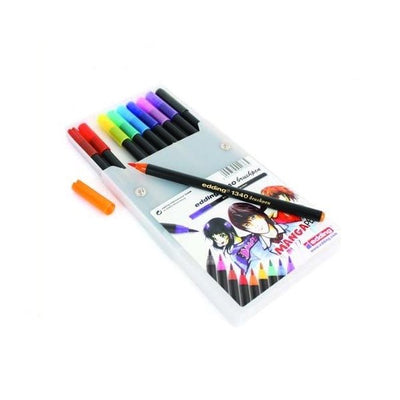Setting up any business isn't easy, and sometimes it can be difficult to know exactly where to start. The same goes for tattooing. There are a lot of important things to think about when opening a tattoo studio. Key points to consider include: a business model, location, supplies, registration, health & safety, and hiring other artists.
It can be a bit of a daunting process, so it's worth considering these points if you're planning on opening a tattoo shop of your own.
Preparation & business model:
- First and foremost, you'll need a business plan. Have a realistic idea of how much it's likely to cost you to start up the business, and make sure that you will be able to afford to run it for at least 3 months without any profit.
- Consider your short term and long term goals. What do you want to get out of the business in terms of clients and profit? Is it attainable?
- It's definitely advisable to make a list of all your outgoings so that you know what kind of profit you'd stand to make. List things like rent, bills, supplies, and any wages you'll need to pay, for example to a receptionist (should you need one). Overheads will all need to be considered carefully before you can begin taking money out of the business.
- Make sure you have a solid understanding of the tattoo industry itself. As a tattoo artist, you should already have a good idea of how tattoo shops run, and if you're going to be tattooing full time, then you'll need to ensure that you still have enough time to be able to maintain the business side of things too. If you aren't already a tattoo artist, then it's extremely important to carry out a huge amount of research when it comes to the profession.

Location:
- The location of your tattoo studio is something that needs careful consideration. Different people want different things out of their tattoo studio. If you're looking for high traffic and are happy to have a lot of walk-in customers, then a building on a main street or in a city centre may be ideal for you. Rent may cost more in locations like these, but if you're expecting a larger footfall then this will be worth the cost of rent.
- If you're looking for a more private studio, which is slightly tucked away, then there will also be options for you. Shop fronts aren't always a must if you want your studio to have more of an exclusive feel.
- Bear in mind that when you acquire the building, it may not all be straight forward, and you may need to make some improvements or carry out maintenance to accommodate your artists, from installing sinks to fitting electrical outlets.
- Don't overstretch yourself, and make sure that you opt for a building that you can afford.

Tattoo supplies & equipment:
- Before you can open a tattoo studio, you'll need to ensure that yourself and any other artists in the shop are fully stocked with supplies.
- Things like tattoo furniture and workstations are a must. Artist chairs, client beds, and mirrors are all essential within a tattoo studio.
- Certain cleaning and sterilisation products are a necessity and passing health and safety checks may actually be dependant on having them. For example, some councils require each individual artist to have their own sink. If this is the case for you, you'll need to ensure that you're fully-equipped.
- As well as furniture and an area to tattoo in, you'll need a full range of tattoo supplies in order to tattoo!
Tattoo Machines
Tattoo Inks
Power Supplies
Needles / Cartridges
Grips, Tips, Tubes
Stencil Application
Spray Bottles
Consumables
Furniture
Printers
Sterilisation
- There are other furnishings and necessary equipment to consider:
- A kitchen area with general kitchen supplies including a sink, fridge, microwave, kettle etc. is ideal
- For a reception area, you'll need a telephone, computer/laptop, desk, chairs, couches, display shelves, and any other necessary furnishings to decorate the shop and make it look good.
The legal stuff:
- Before you can open your tattoo shop, you're required to register with the appropriate organisations, such as the local health and safety department, so you will need to contact your local council or municipal department and they will help you get in touch with the necessary organisations.
- You should already know the laws relating to tattooing and sanitation, although it may vary depending on your location, so your local authority will be able to advise you on this.
- There are some important regulations in the UK and your local council will need to conduct some inspections of the premises to ensure that it is compliant with any health and safety laws.
- All tattoo artists in the studio will need to be licensed by their local council. It's illegal to tattoo without a license.
- You'll also need to register your business.
- Insurance is a must—so consider things like public liability insurance, and make sure the other artists do the same. You may need to get building insurance and other insurances associated with leasing the tattoo studio, so make sure you are all sorted before opening.
- It may be worth enlisting the help of an accountant who specialises in small businesses. There are a number of things they can assist you with including advice on business accounts, VAT, and book-keeping.
Marketing and promotion:
- Any successful business owner will tell you that marketing is key, particularly in the initial stages of a brand new business. You'll want to get the word out to the right audience about your studio and advertise the service that you're providing. There are many ways in which to raise your business profile, and the best way nowadays is through social media.
- Keeping on top of your Instagram and Facebook account and making it look as professional as possible is extremely important. Make sure you regularly post great quality tattoos, engage with your audience, and respond efficiently to any customer enquiries. Some shops prefer for customers to contact the individual artists when it comes to taking bookings, so just ensure that you make that clear so potential customers know who they need to speak to about a tattoo.
- Setting up an eye-catching and easy-to-use website is a great idea, as you can create an online portfolio for each artist, and also provide customers with any information they need about booking their tattoo.
- There are other ways to promote your business, such as flyers, radio adverts, Google Ads, Sponsored posts on Instagram and Facebook, blogs, and of course, word of mouth!

Useful things to consider:
- Although some artists prefer to manage their own bookings and enquiries themselves through email or Instagram, this method doesn't suit all shops.
- A shop diary or planner that can be accessed by everyone is a great idea, especially in studios where work is allocated to artists on an availability basis.
- You can use shared calendar apps and also opt for online appointment booking apps, which allow clients to allocate themselves to available appointment slots. This isn't something that will work for all studios, but it's worth considering if you're running a busy shop with a lot of artists.
Opening the Tattoo Shop:
- Lastly, if you want other professional artists to work in your studio, then make sure you carefully consider who you hire.
- Not only is a high standard of work important, but getting on well with the other artists is paramount to running a good work environment. It may be useful to get to know other artists before you hire them to ensure they're the right fit for your studio.
There's a lot to consider when it comes to opening a tattoo shop, and what works for one person may not necessarily work for another! The best thing you can do is be as prepared as possible, consider all of the above points, and stick to a plan.
Love from the Magnum Team
Blog & image credits:
https://smallbusiness.co.uk/important-marketing-small-businesses-2539681/
https://entrepreneurhandbook.co.uk/starting-a-business/
https://www.startupdonut.co.uk/start-up-business-ideas/types-of-business/how-to-start-up-a-tattoo-studio
https://www.unbiased.co.uk/life/small-business/start-a-business#business-structure



























































 Studio supplies
Studio supplies












 Power & batteries
Power & batteries








 Aftercare
Aftercare





















 Apprentice
Apprentice


 Piercing & jewellery
Piercing & jewellery







 PMU supplies
PMU supplies




 New arrivals
New arrivals
 Gift vouchers
Gift vouchers
 Shop all
Shop all















































